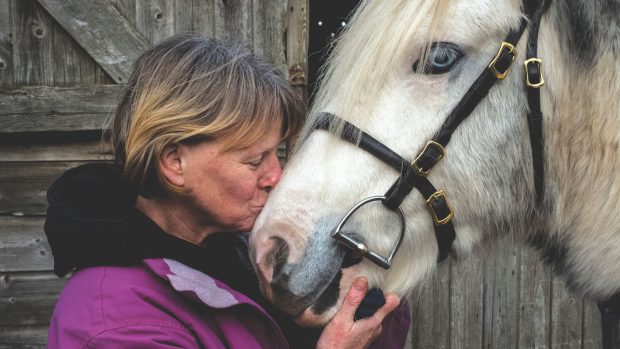Bullying behaviour by the British Equestrian Federation’s (BEF) founding members forced its chief executive Clare Salmon to resign, an independent review has found.
The investigation, commissioned after Ms Salmon stepped down following a “battle for the heart and soul of equestrianism”, was tasked with looking into the outgoing CEO’s allegations of bullying, elitism, self-interest and corruption.
The panel behind it found the actions of the BEF founding members – British Dressage (BD), British Showjumping (BS), British Eventing (BE) the British Horse Society (BHS) – and the Pony Club on 12 July 2017 “can be objectively viewed as [their] bullying the BEF into a position that Ms Salmon’s role was rendered untenable”.
The report acknowledges that some member bodies (MBs) “view their actions on 12 July as being necessary for the greater good of equestrianism” but adds: “Be that as it may, the method used on that day was not good governance.”
It says the founding members had key concerns, including a breakdown in communication between themselves and the BEF, and Ms Salmon’s “personality and behaviour in terms of trying to instigate rapid change”.
It adds: “More specifically, by July 2017, there had been a breakdown in trust and confidence between, the Olympic disciplines, BHS and Pony Club and, on the other [hand], Clare Salmon.
“From those MBs’ perspective, active steps needed to be taken to address that state of affairs. As it was put by one contributor from a MB, ‘in simple terms, the relationship between the BEF and [the MBs] had crumbled through lack of trust. I did not believe that the BEF was acting on behalf of [the MBs], but rather wanted to be [the MBs].’ In their view, by the summer of 2017 those MBs had no choice but to take the bull by the horns. It was, as one contributor labelled it, a ‘battle for the heart and soul’ of equestrianism.”
The report describes a meeting on 12 July between the founding members, the Pony Club and the BEF, at which strategy and governance were to be discussed.
It states that the MBs asked for a pre-meeting with the BEF board, but without BEF executives including Ms Salmon.
“The then BEF chair should have ordinarily chaired the meeting but there was a ‘take-over’ by the Olympic disciplines, with one of their chairs chairing the meeting instead,” the report reads, adding that the Olympic disciplines “drove the agenda” of the meeting, while the five MBs read statements to the effect that “[Clare Salmon] should be removed from her post or placed on garden leave…”
The report continues: “A BEF figure present at the meeting described it as if ‘we [the BEF] had a gun to our head’.
“Two out of the three Olympic disciplines have informed the panel that, in their view, ‘if [Ms Salmon] continued it would cause irreparable damage to the sport and crucially damage prospects of the BEF being able to continue to represent [member bodies] in the same form’.”.
Continues below…

Clare Salmon resigns from the British Equestrian Federation
The chief executive of the Britain's national federation for horse sport has stepped down from her post

New boss for British equestrianism
The new chief executive said he ‘cannot wait to get started’

Carl Hester: Where have all the sponsors gone? *H&H VIP*
Horse & Hound's dressage columnist muses on the ‘curious’ disappearance of major backers
The meeting was adjourned, and concluded with the member bodies stating that they expected a decision on Ms Salmon’s future by the end of the week.
The CEO resigned the next day, emailing 64 recipients including all BEF member bodies to make the allegations that led to the commissioning of the report.
But the panel found the events of 12 July were the culmination of “many years of a power struggle between the BEF and member bodies, in particular the founding members, as to the role of the BEF”.
It refers to the fact Ms Salmon tried to introduce change “arguably too fast” and that the member bodies felt they had not been consulted properly “but rather were being steam-rollered into giving up power and influence over their disciplines and membership”.
“In short, the panel is of the view that the key relationship issue between the BEF and member bodies is the lack of clarity and acceptance of the precise role for the BEF itself…
“It is that key relationship issue which must now be addressed, failing which the panel can see the situation which played out in dramatic fashion… repeating itself.”
It found there was elitism, as the founding members “ultimately dominated key decision-making at the BEF, culminating in the meeting on 12 July 2017”, but no corruption.
The panel identified three key areas for recommendations:
- The identification of the role and responsibilities of the BEF
- The establishment of strong leadership within the BEF
- The maintenance of good governance
“The panel cannot emphasise enough that behaviours must change as to how the BEF is governed in practice,” the report reads. Read the report in full here.
The member bodies’ responses
BD said it does “not necessarily recognise or agree with some of the… report” but that a number of issues raised have already been addressed, and that it “fully supports and endorses” the panel’s recommendations. Read the full response here.
BS welcomed the recommendations, looks forward to working with the BEF on implementing them. Read its full response here.
BE also welcomed the recommendations and looks forward to implementing them. Read the full response here.
All three welcomed the new CEO, Nick Fellows, who takes up the job at the end of March.
The BHS also supported the recommendations, and said it “continues to support the BEF and work collaboratively with all member bodies”. The Pony Club welcomed the recommendations, looks forward to working with the BEF and partners to implement them and believes “the work already done on the code for sports governance and other key areas will contribute to a strong future for our sport”.
Read more in the next issue of H&H magazine, on sale Thursday, 22 March





